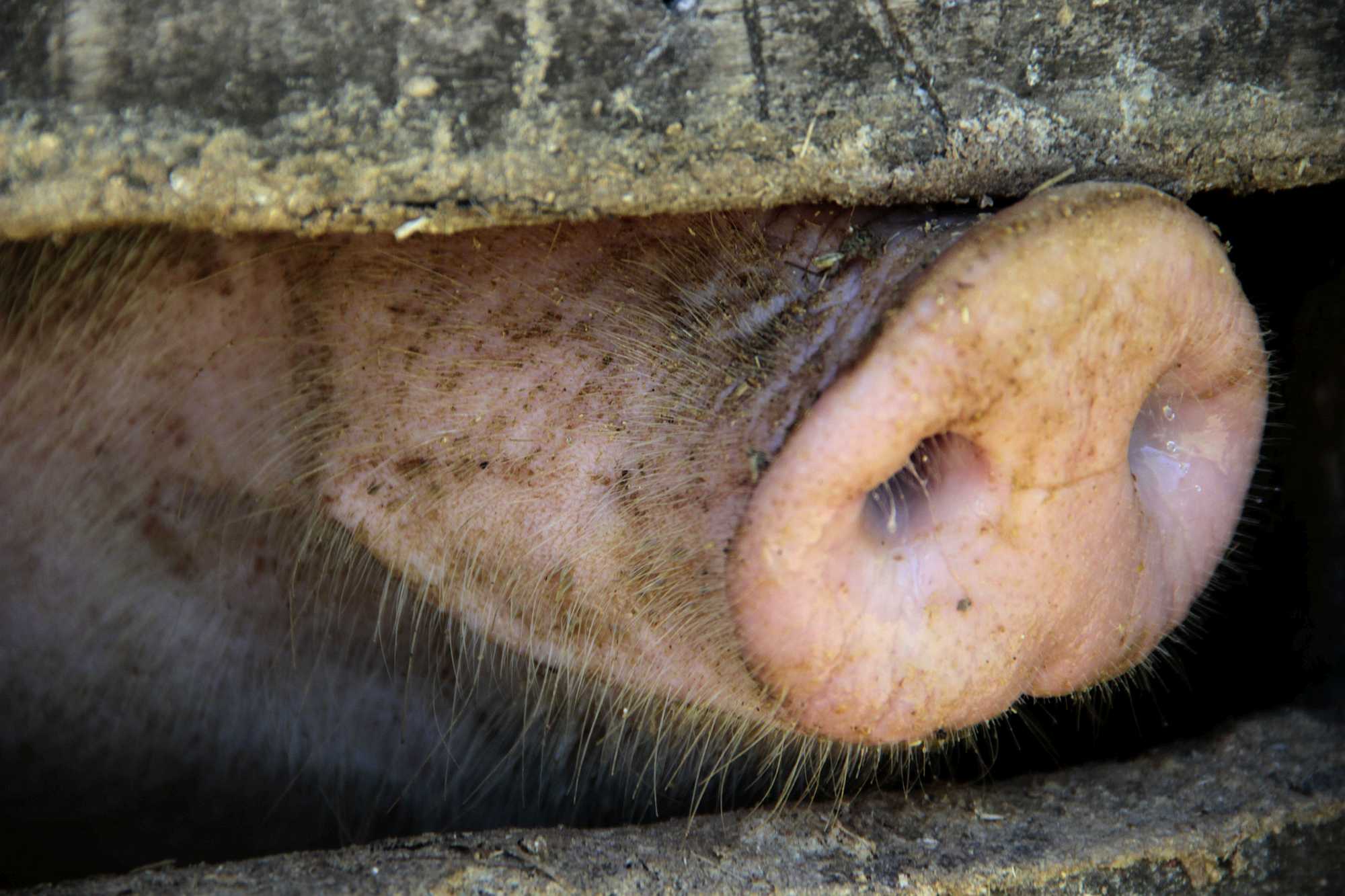Germany’s global candymaker Haribo was forced on the defensive on Thursday after a documentary by public broadcaster ARD revealed horrifying conditions for both the animals and humans responsible for the manufacture of key ingredients of the much-loved gummy bears and other Haribo products.
The 45-minute documentary Markencheck (“brand check”) examined both the health and production issues of Haribo products, which are sold all over the world, and found failures of oversight in the production of carnauba wax and animal gelatin that left some of Brazil’s poorest workers, and pigs in industrial farms in Germany, suffering in horrific conditions.
Carnauba wax, which is applied to gummy bears to make them glossy and prevent them from sticking together, is gleaned from the leaves of carnauba palm trees, which only grow in Brazil’s northeastern states of Piauí, Ceará, Maranhão, Bahia, and Rio Grande do Norte — among the country’s poorest regions.
The wax is also used in products like car oil, shoe polish, and dental floss, and some US$ 118 million worth is exported from the region to many countries around the world, chiefly the United States, Japan, and Germany.
Modern Slavery
The filmmakers found Haribo was sourcing its carnauba wax from plantations where workers earning 40 reais (US$ 12) a day have to cut the leaves down with hooked blades tied to long poles, are forced to sleep outside or in trucks, have no access to toilets and have to drink unfiltered water straight from nearby rivers. Some of the workers are also underage.
The conditions on the plantations are so poor that the Brazilian police occasionally carry out raids to free the workers. A Brazilian Labor Ministry official said there had been an increasing number of complaints about the carnauba wax industry and that authorities had found many people working in conditions “that could be described as slavery.”
“The workers are treated as objects, worse than animals,” he said.
Germany’s branch of Amnesty International said it was up to German companies, as well as the government, to check that suppliers don’t commit or contribute to human rights abuses.
“If there are human rights abuses, they have to provide remedy and compensation,” said Lena Rohrbach, economy expert at Amnesty Germany. “Unfortunately, the German government has failed to really bind companies to their duty of care.”
Rohrbach went on to point out that other countries, such as France, had drawn up laws obligating companies to pay attention to human rights and the environment all the way along their supply chains. According to the Global Slavery Index, 40.3 million people live in modern slavery around the world today.
Pig Cruelty
As part of the film, ARD also aired footage recorded by an animal rights group in pig farms in northern Germany. The unnamed farms provide pig skin for meat producer Westfleisch, which processes it for Haribo’s gelatin supplier Gelita.
The footage showed pigs with open sores and abscesses living in indoor pens in their own excrement and in some cases among their own dead. Some pigs were also deprived of drinking water.
Veterinarians interviewed on the program said that the conditions clearly violated Germany’s animal protection laws. The animal rights organization Tierretter, which provided the footage by secretly entering the farms at night, said in a statement, “It almost seems cynical that a product that is partly manufactured under such cruel conditions for animals is given the form of a cute animal.”
In response to the documentary, Westfleisch said it was “not aware” of any violations of German animal cruelty laws at its farms. Gelita said it supported all measures for “species-appropriate animal farming.” Gelita also claimed that the pigskin it used came “exclusively from healthy animals that are slaughtered in approved slaughterhouses and are subject to examinations.”
In response to the ARD’s documentary, Haribo offered a statement saying that they were not aware of a “violation of our guidelines” but that it would “proactively” pursue the issues with its suppliers.
“We are a company that wants to bring joy to children and adults,” the statement added. “We can therefore not accept the disregard of social and ethical standards.”
Haribo pledged to examine conditions along its entire supply chain in an effort to uncover abuses. The Bonn-based firm added that it did not know where the footage in the pig farms had been recorded, or whether this was one of Haribo’s direct suppliers.
The company said it had asked the broadcaster to supply it with more information, and that “in principle, everyone in society must think about how to deal with species-appropriate animal farming. We are committed to that and are aware of our responsibility.”
DW













